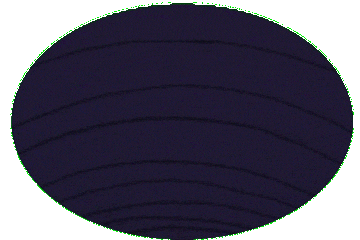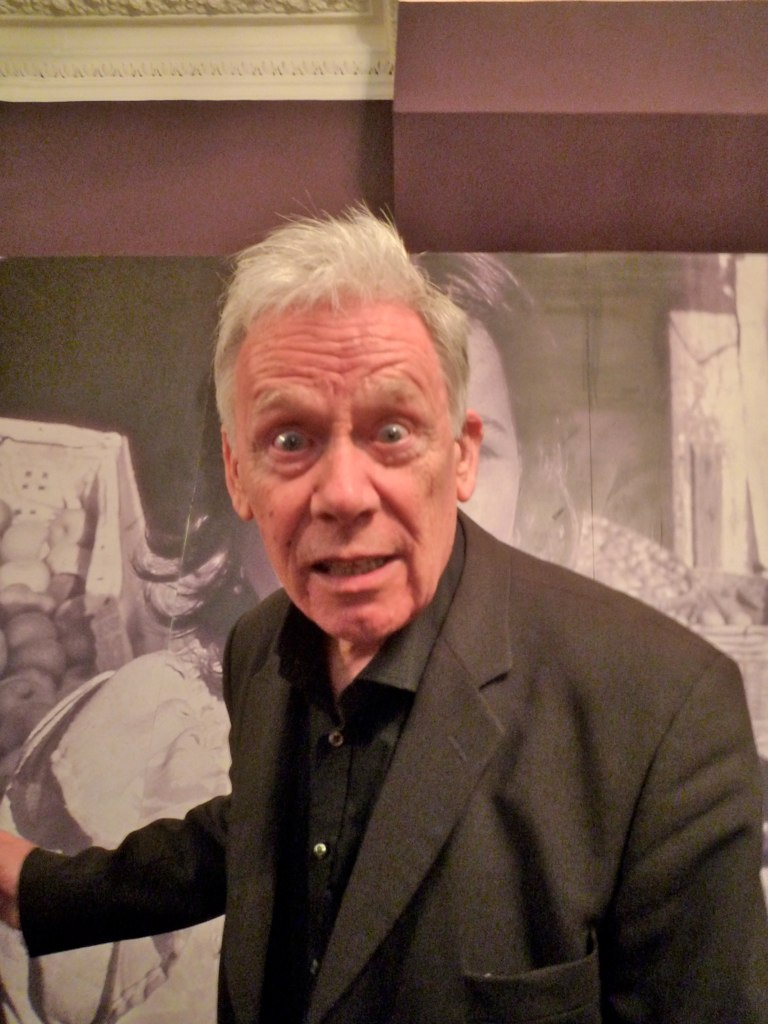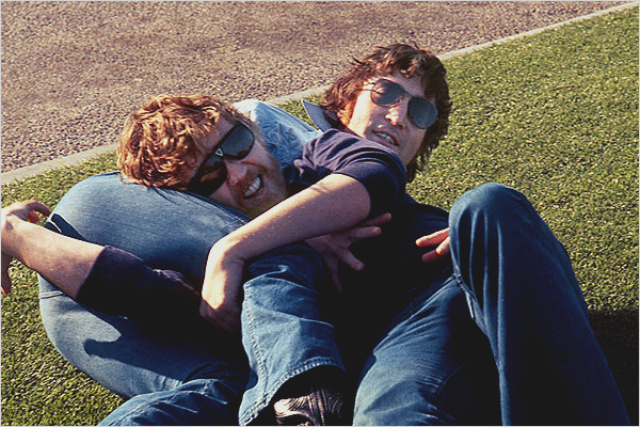A newly-released film shows Harry Nilsson and Ringo Starr attending the premiere of Son of Dracula.
Harry Nilsson and Ringo Starr at the Son Of Dracula Premiere


Newly-Released Film of Harry Nilsson and Ringo Starr at the Son Of Dracula Premiere
A newly-released film shows Harry Nilsson and Ringo Starr attending the premiere of Son of Dracula.
Harry Nilsson and Ringo Starr at the Son Of Dracula Premiere
Richard Perry Has Died
Richard Perry, producer of Harry Nilsson's Nilsson Schmilsson has died. Perry died at age 82 on December 24, 2024.
Harris/Waltz Advertisement Uses "Best Friend"
On September 19, 2024, the Kamala Harris presidential campaign released a video showing clips of rival Donald Trump praising Mark Robinson a gubernatorial candidate under scrutiny for posting inflammatory comments on a pornography website. Nilsson's "Best Friend" plays throughout the short video.
Best friends ❤️ pic.twitter.com/baS5sRfzIo
— Kamala HQ (@KamalaHQ) September 19, 2024
The video was posted on X (Twitter) but later superceded by a longer TV commercial without Nilsson's song.

Herbie Flowers - "Jump Into the Fire" Bass Player - Has Died
Herbie Flowers died on September 5, 2024, at the age of 86. Flowers was a member of several groups including Blue Mink, T. Rex, and Sky. As a session musician, he played bass guitar, double bass, and tuba on recordings for artists including Elton John, David Bowie, Lou Reed, David Essex, Al Kooper, Bryan Ferry, Cat Stevens, Paul McCartney, George Harrison, Ringo Starr, and Harry Nilsson.
Flowers played bass on Nilsson's Nilsson Schmilsson album and created the famous "detuning bass" part in "Jump into the Fire."
The Dream Weaver Has Died
Gary Wright died at his home in Palos Verdes Estates, California, on September 4, 2023. Although best known for his solo hits "Dream Weaver" and "Love Is Alive" - and having been born and raised in the US - Wright first caught the attention of music fans as a member of the British band Spooky Tooth in the late 1960s. Wright left the band in early 1970 to begin a career as a solo artist and session musician.
In 1971 Harry Nilsson recorded "Without You" which was destined to be his biggest hit. Rick Wakeman played the piano for an early take of the song, Nilsson and his producer, Richard Perry, decided that Wakeman's track was "too busy, too complex."
So we replaced Rick Wakeman with Gary Wright and he began, just like you hear on the record, very simple. It was just right![1]

Harry Nilsson is often mentioned and appears in several photographs in May Pang's 2008 book, Instamatic Karma: Photographs of John Lennon.